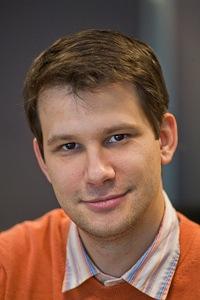
Remember the hysteria related to Y2K?
One of our top engineers, The University of Surrey’s Radu Sporea, profiles a very similar issue we may face in the year 2038.
Dr. Radu Sporea is Royal Academy of Engineering Academic Research Fellow in the Advanced Technology Institute at the University of Surrey.
His current research focuses on power-efficient, cost-effective large-area electronics in organic and inorganic semiconductor technologies.
Additionally, Dr. Sporea enjoys traveling, podcasting, photography and public engagement in science.
Year 2038 Problem

I often buy plane tickets for my parents. Sometimes, the field that stores their IDs’ expiration date won’t let me select a year later than 2037.
For some reason, their papers expire sometime in the 2070s and, while I wish them luck, I doubt that they’d be living that long. Still, it saves them from ever having to renew, and selecting 2037 in the passenger info box has never caused any difficulty.
But this quirk might have a very serious origin, called the Year 2038 problem. It’s all to do with the way computers represent time and date, and it’s closely related to the more snappily titled Y2K from the turn of the century.
Now what about 2038? A lot of computers represent time and dates using a 32-bit digital number and a reference date of January 1 1970. Out of the 32 digits, the last 31 hold the date and time, or rather, the number of seconds away from the reference, for a maximum of 2,147,483,647 seconds. That’s more than 60 years.
The digit is the sign (0 for future, 1 for past), so we can represent dates after the 1970 reference as well as before.
The system breaks down when we reach 19 January 2038. At a point around 3am, all the digits are one, except the first one. Add one more second and the whole 32-bit date flips over – the sign is now 1 and all the other digits zero, so we’re back 60-odd years before January 1970.
By 2038, it’s likely that technology will change so much that new computer systems will bypass the problem completely, but my folks may need to change their IDs after all.
